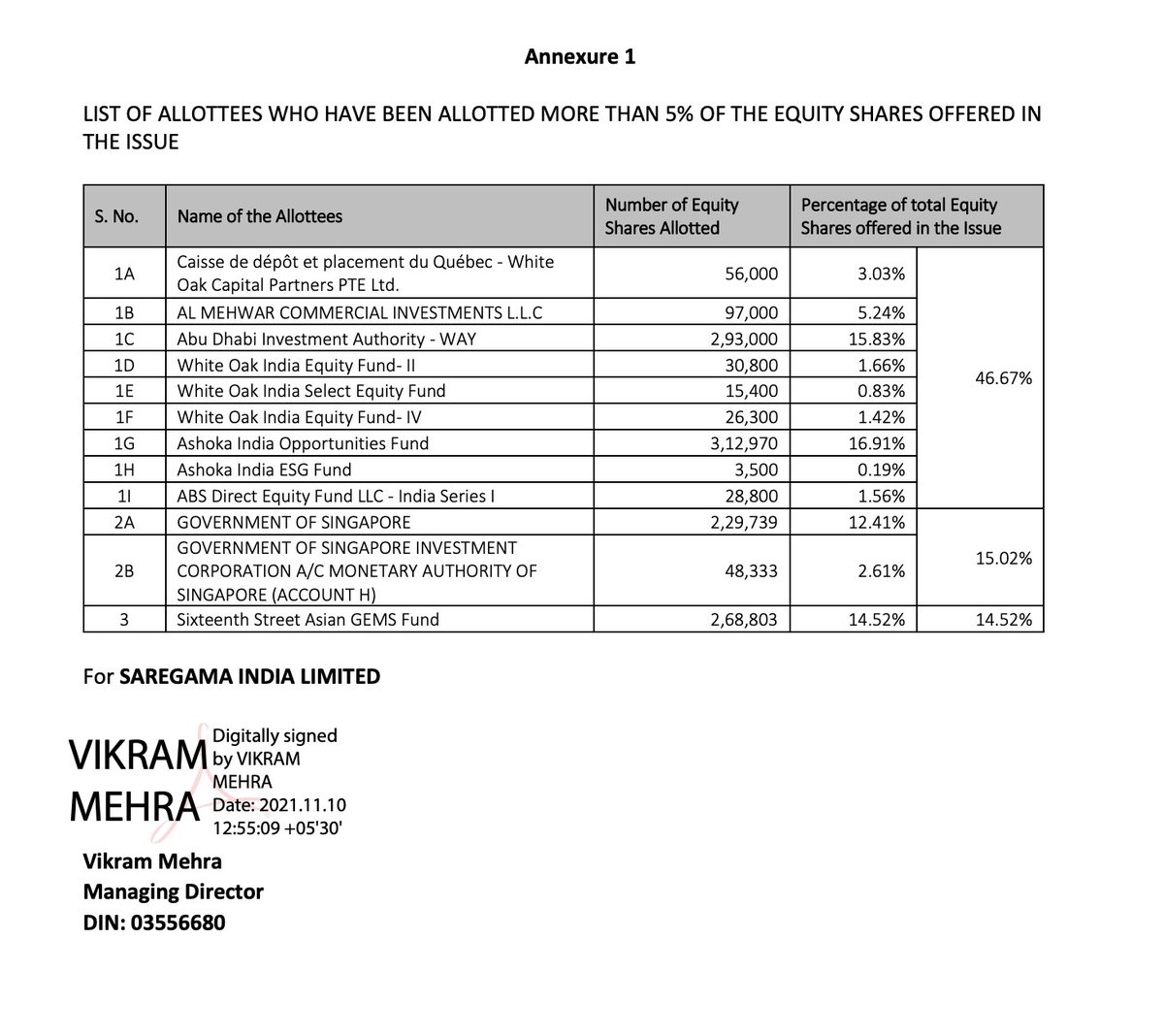
One of the tribe members asked a question that his 12 year son is analysing a business. Which are the questions that he should ask to understand the business well.
Posting the answer for everyone's benefit
🧵🧵🧵🧵
Posting the answer for everyone's benefit
🧵🧵🧵🧵
Answer:-
Asking questions is the best way to learn about something that we don't know. I have a nephew at home, he keeps asking me "Piyush chachu ye ka hai" (Piyush being my nickname, he cannot completely say kya). Smiling when I think about it :)
Asking questions is the best way to learn about something that we don't know. I have a nephew at home, he keeps asking me "Piyush chachu ye ka hai" (Piyush being my nickname, he cannot completely say kya). Smiling when I think about it :)
Some of the basic questions I would like my nephew to ask or your son to ask if he's researching a business:-
Q1. What is the value that the company adds to the society? Basically why does the business exist in the first place? Eg:- Chemicals are used in multiple applications which are required in our day to day life or Tesla is a part of broader theme of commuting.
Q2. Which type of industry the company operates in? What is the industry growth rate and the total size of opportunity? It really helps to write down the Total size of the opportunity. Forces you to think and find the number even if it is a guesstimate.
Q3. What are the products that the company manufactures? Who are the customers and what are the application of the products?
Place the business in either of the categories:- B2C (Low working capital usually), B2G: Business to government (High working capital), Business to institutions (Eg: Laurus ARV tender business), Business to Business or B2B. Different categories, have different characteristics.
Q4. A Simple 5 forces analysis of the company and the industry structure around it:-
A) Are there any barriers to entry or threat of new entrants? If yes, then why (will highly recommend reading Pat Dorsey's little book that beats the market or understanding Michael Porter. Both are short and easy to read books). (Look at long term ROCE)
B) Competition within the industry. Who all are the peers? How many competitors are there for the product? Eg:- In Deepak's case. The real competition is imports as the other 2 Phenol capacities in India are old and Underutilized.
C) Threat of substitutes? Can Phenol be replaced by a substitute? Haven't come across any. Why is this important? Just imagine you own Mosabaer's stock that was the largest CD producer in the country. Substitutes just killed them.
D) Bargaining power of the buyers: Only one thing to look for here. Margins stability over a period of time. If margins are highly volatile, points to higher bargaining power of the buyers or to the commodity nature of the business the company is doing.
E) Bargaining power of suppliers:- Check Gross Margins. If a company has poor bargaining power with the buyers and suppliers. Gross Margins will be the first to take a hit!
Q5. Look at the margins of the company, compare it to the peers and start asking yourself why? Why Clean science has the highest margins, why a business like Pix is doing high margins or why Deepak Nitrite's one division does 30%+ margins vs others that are volatile.
Also think about where does this business operate in the value chain. Key point of these questions is to keep thinking about Why?
Why is a company doing something which others cannot or others can.
Why is a company doing something which others cannot or others can.
For eg: I cannot invest in Solara. As I don't have the asnwer to the why and what is their right to win in incremental API's they file? Its a trade at best if I buy as I don't have the answer.
If the margins are going through wild swings then it clearly means that the business is commoditized in nature.
Also look at what the management calls value added products (eg, just compare Hatsun Agro vs its peers, you will get an answer about margins & vap.
Also look at what the management calls value added products (eg, just compare Hatsun Agro vs its peers, you will get an answer about margins & vap.
Q6. Focusing on the past financials helps you to look at the track-record of the management in numbers. Eg:- Ask yourself how the topline growth has been in the last 5-7 years? Is the growth missing or the company has grown faster than the industry then why?
Q7. Once business and some ratios are understood (namely:- topline growth, past debt to equity, ROCE, Margins stabilitiy). Now its the time to look at future growth. Look for the key variable of growth as it is different in every industry.
Eg:- In IT, it is deal wins, Headcount addition, client mining etc. In chemicals, you have to look for capex size and nature of the capex. In Retail, you have to look for number of store additions.
In a nutshell, just ask yourself:- What will lead to growth and what are the variables that indicate towards the same.
Finally:- Think about the risks that the business faces and if the managment is willing to share wealth with the shareholders or not
Finally:- Think about the risks that the business faces and if the managment is willing to share wealth with the shareholders or not
• • •
Missing some Tweet in this thread? You can try to
force a refresh








